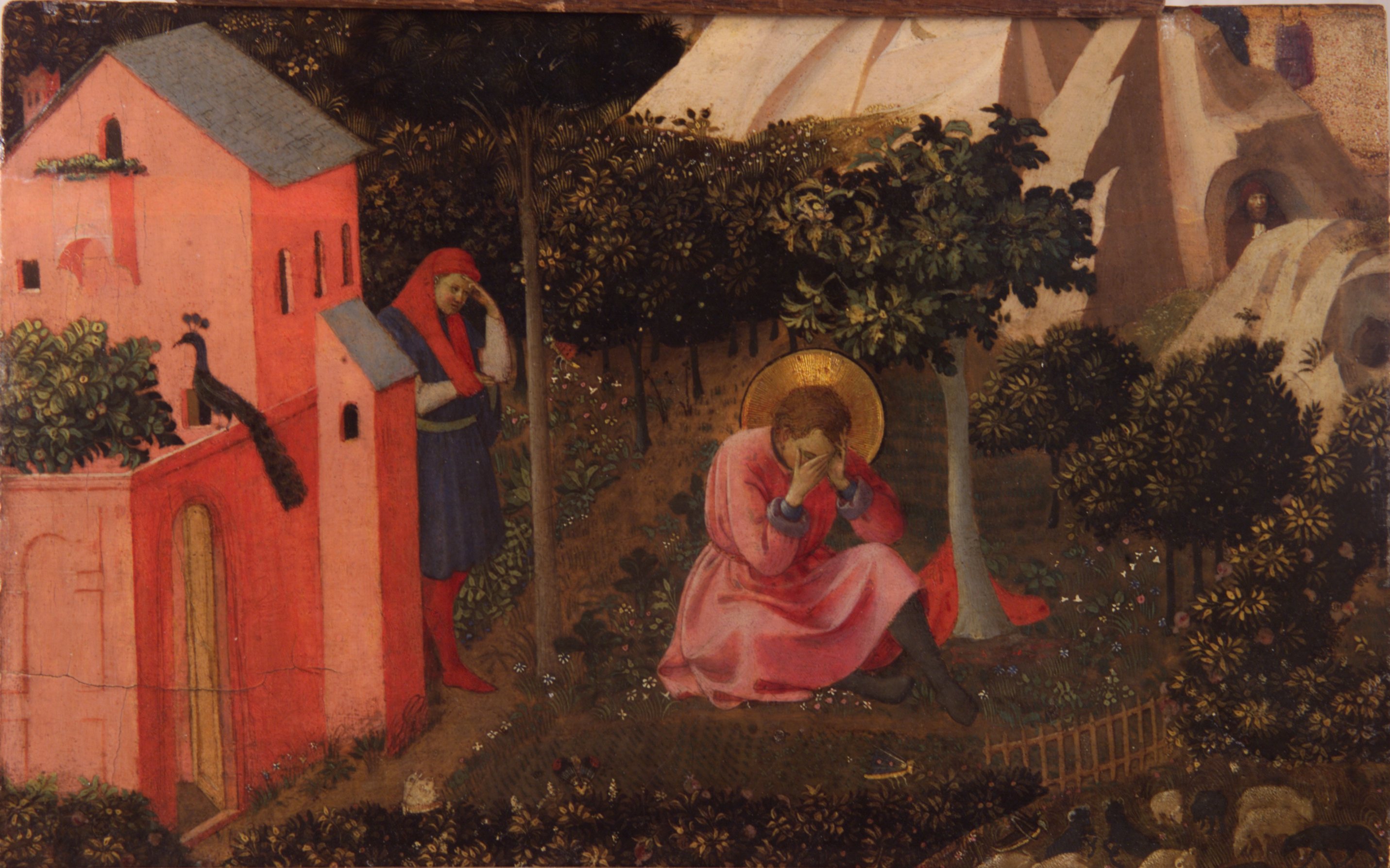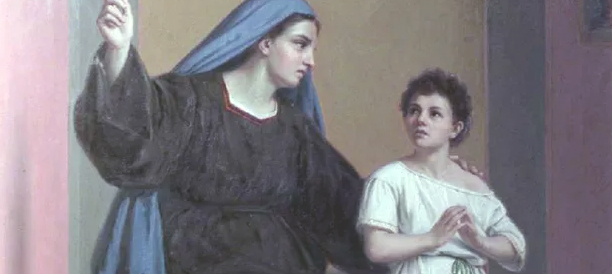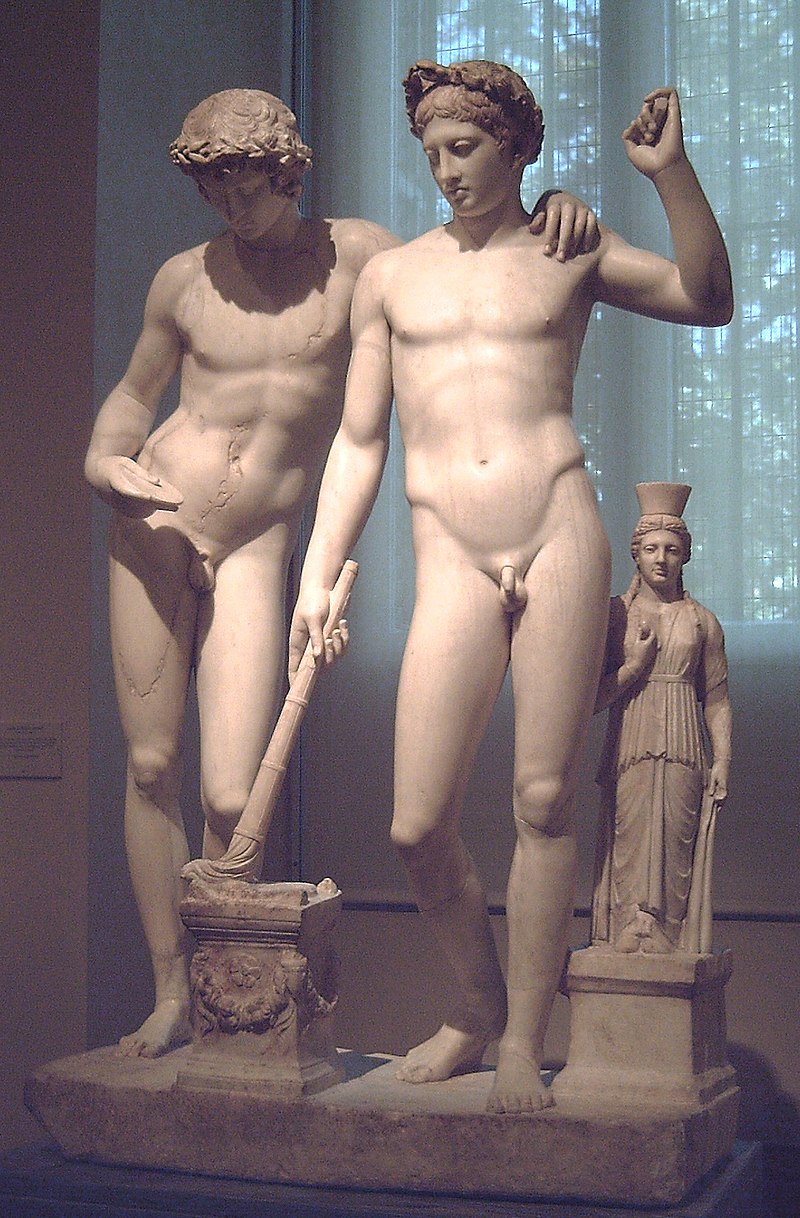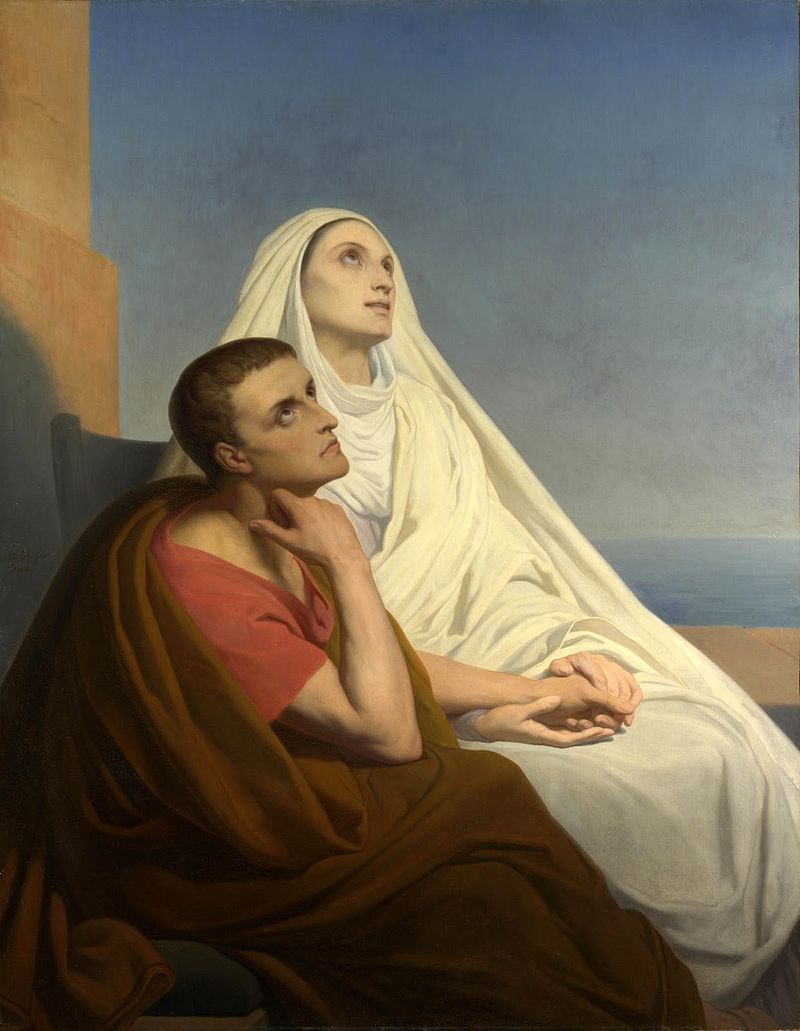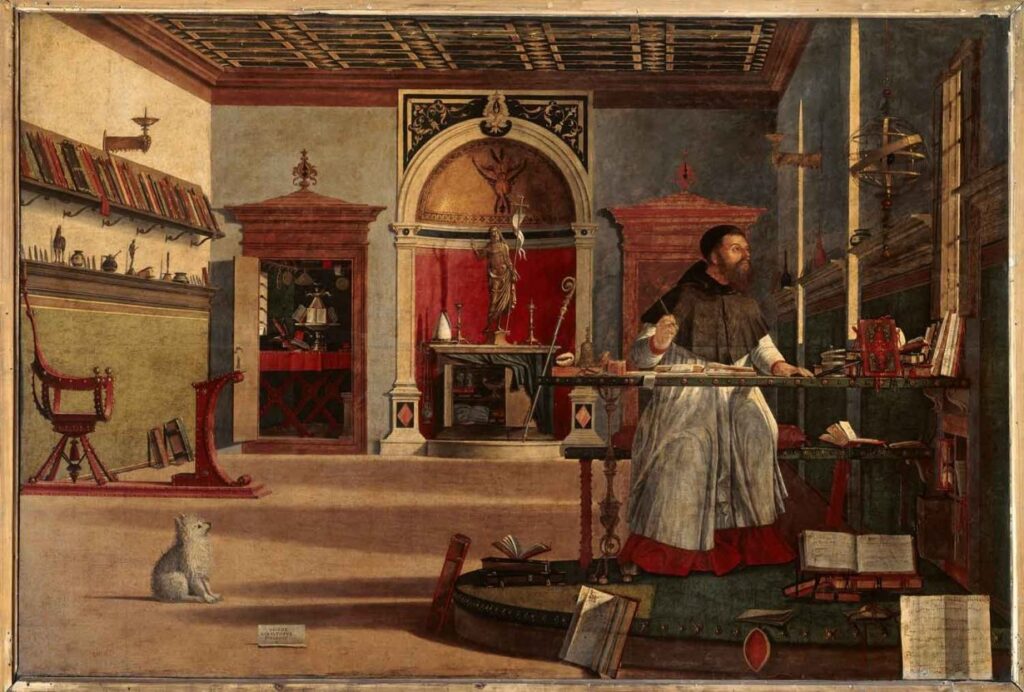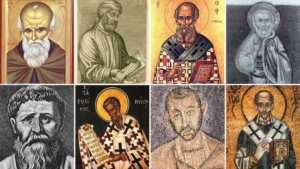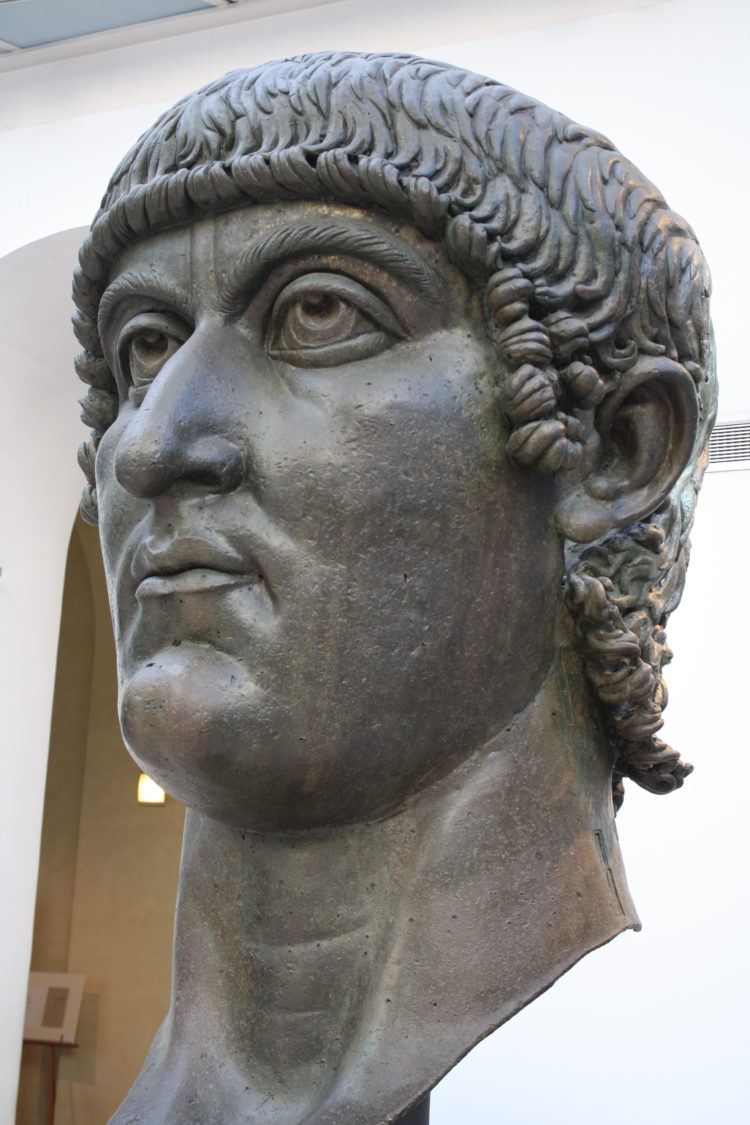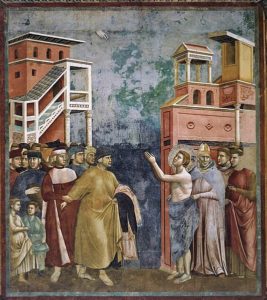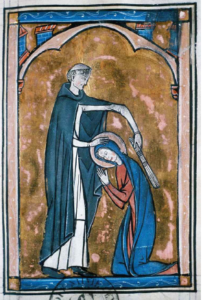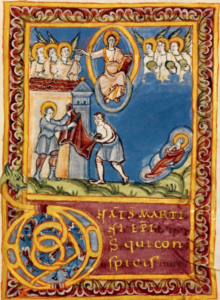BOOK IX: With his mother and friends he returns to his native Africa
‘…where I had offered you as a sacrifice, my old self’ Augustine writes in this chapter. He didn’t realise that his ‘new self’ was what psychologists today would call the false self: his relationship with his god, to whom he speaks in the second person singular, was a maternal introject—not his true self! But now imbued with his false self, the absorbing mother within him, he writes: ‘My heart was fire’ and ‘now I was disgusted by those who rebel against the Scriptures’: a preamble to the destruction of the works of Celsus and Porphyry ordered by Emperor Theodosius II.
After his ‘conversion’ Augustine wrote to Ambrose and signed up to be baptised, so he, his mother and Alypius, who would also convert to the cult of the Galileans (Emperor Julian’s term), returned to Milan.
We also brought Adeodatus, my natural son, born of sin. You had gifted him well. He was barely fifteen years old… His intelligence left me speechless.
A little later, Augustine devotes some interesting pages to how his grandparents had educated his mother, and how they had turned her into a puritan: through mistreatment. I was especially struck by these words, which are understandable if we imagine the African heat, where the family grew up: ‘Apart from the hours when they ate soberly with her parents, she wasn’t allowed to drink even water, even if she burned with thirst’. But I find it very strange that in his book Augustine didn’t tell anecdotes about his siblings. What did he want to hide from us? What we do know is that his mother had fulfilled her mission:
She said to me: ‘My son, as far as I am concerned, I no longer find pleasure in this life… There was only one reason why I wanted to stay a little longer in this life. I wanted to see you as a Catholic Christian before I died. My God has fulfilled this desire even more fully than I wished. I see you his servant, who despises the happiness of the earth. What am I doing here?’
I don’t remember my answer well. What I do remember is that, barely five days later—not many more—she fell into bed with fevers… At fifty-six years of age and thirty-three years of mine, that pious and holy woman was released from her body.
It is very significant for those of us who research mental disorders to read, a couple of pages later, a retrospective recollection when her mother was still alive:
And she also reminded me with emotional affection that she had never heard a harsh word or insult against her come out of my mouth.
But he would take out his pent-up rage with his theological pessimism, so opposite to that of Pelagius. The following year Adeodatus died (had the great doctor of the Church treated his son well?) and the narrative part of his Confessions ends. The rest of the next four chapters are mere homilies for new converts.
If we ignore them (books X to XIII of his Confessions), it seems very significant that Augustine ended his book with this great account of his mother. As my father told me, ‘Faith is suckled’. And as Monica told her son: ‘Where I was’, in her dream of the rule, ‘there you were’. The rest—the coming theology of Augustine—followed from there.
No wonder that the year Augustine died, 430 c.e., was the year in which the Dark Ages began. When I see the astronomical damage done to the white man by the Imperial Church, that Church of which Augustine was its great architect, I increasingly admire Nietzsche’s The Antichrist. Unlike Cervantes, Goethe, Dante, Shakespeare and Augustine himself, the German philosopher was a ‘man against his time’, a poet against the Christian Age. Now, thanks to new ways of refuting Christianity besides Nietzsche’s—Richard Carrier’s mythicism and the autobiographical genre I want to inaugurate (which precisely shows that faith is indeed a programme installed in us by our parents)—, the mental virus for the white man implanted by deranged theologians could, potentially, cease to infect us.
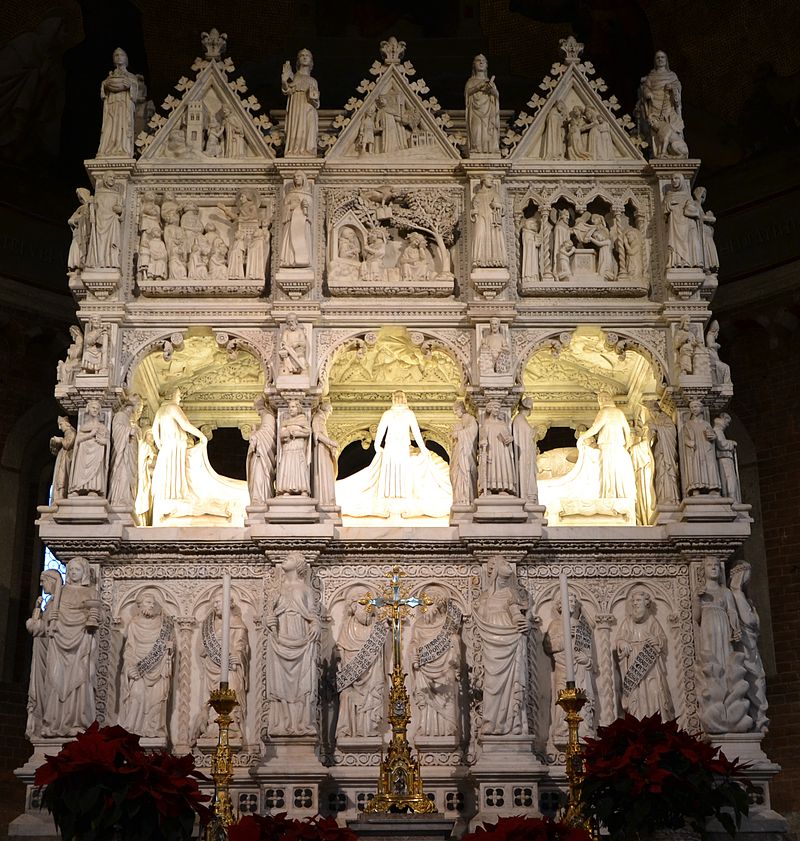
Giovanni di Balduccio, Tomb of St Augustine in Pavia, Italy.
